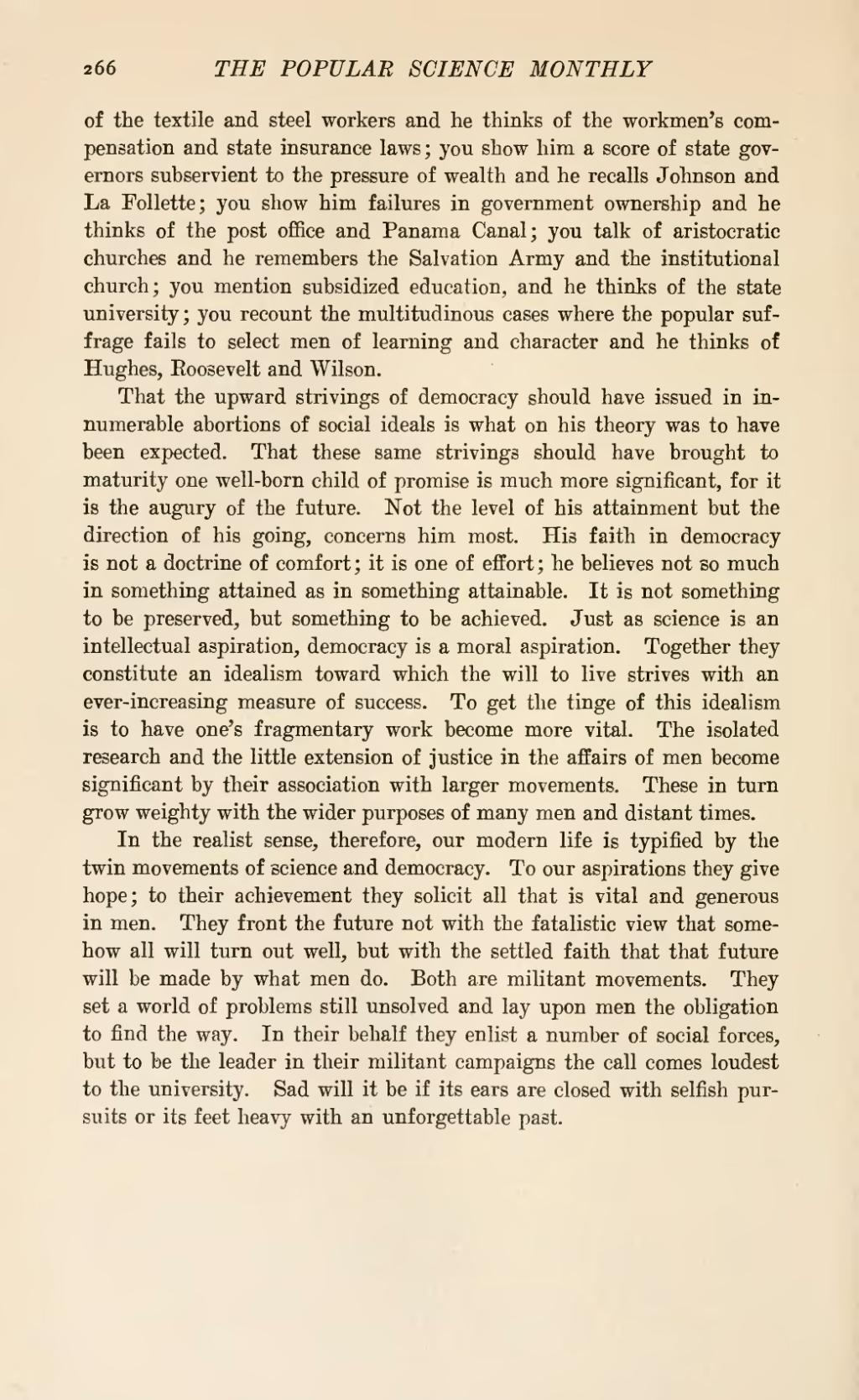of the textile and steel workers and he thinks of the workmen's compensation and state insurance laws; you show him a score of state governors subservient to the pressure of wealth and he recalls Johnson and La Follette; you show him failures in government ownership and he thinks of the post office and Panama Canal; you talk of aristocratic churches and he remembers the Salvation Army and the institutional church; you mention subsidized education, and he thinks of the state university; you recount the multitudinous cases where the popular suffrage fails to select men of learning and character and he thinks of Hughes, Roosevelt and Wilson.
That the upward strivings of democracy should have issued in innumerable abortions of social ideals is what on his theory was to have been expected. That these same strivings should have brought to maturity one well-born child of promise is much more significant, for it is the augury of the future. Not the level of his attainment but the direction of his going, concerns him most. His faith in democracy is not a doctrine of comfort; it is one of effort; he believes not so much in something attained as in something attainable. It is not something to be preserved, but something to be achieved. Just as science is an intellectual aspiration, democracy is a moral aspiration. Together they constitute an idealism toward which the will to live strives with an ever-increasing measure of success. To get the tinge of this idealism is to have one's fragmentary work become more vital. The isolated research and the little extension of justice in the affairs of men become significant by their association with larger movements. These in turn grow weighty with the wider purposes of many men and distant times.
In the realist sense, therefore, our modern life is typified by the twin movements of science and democracy. To our aspirations they give hope; to their achievement they solicit all that is vital and generous in men. They front the future not with the fatalistic view that somehow all will turn out well, but with the settled faith that that future will be made by what men do. Both are militant movements. They set a world of problems still unsolved and lay upon men the obligation to find the way. In their behalf they enlist a number of social forces, but to be the leader in their militant campaigns the call comes loudest to the university. Sad will it be if its ears are closed with selfish pursuits or its feet heavy with an unforgettable past.

